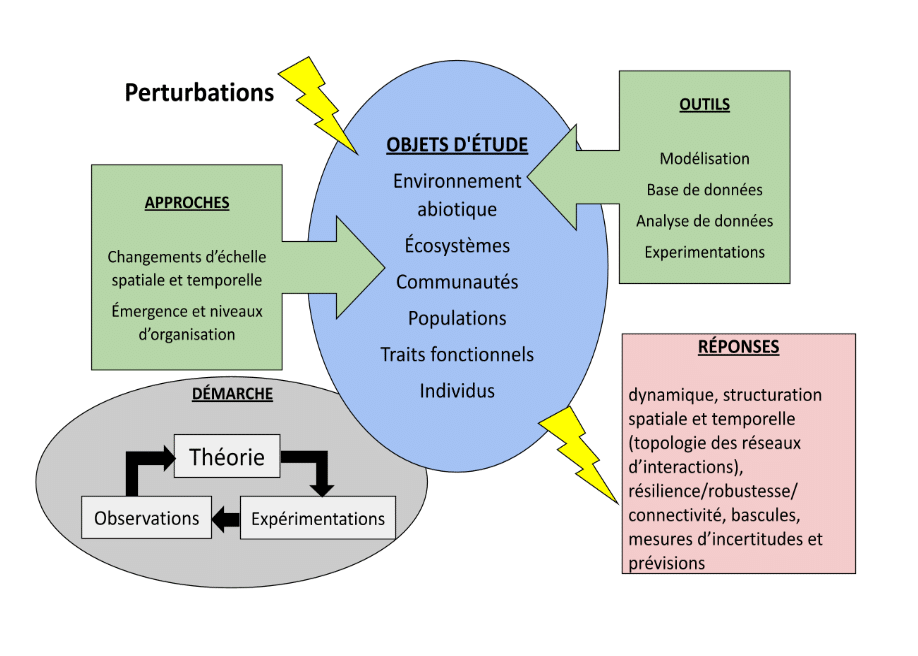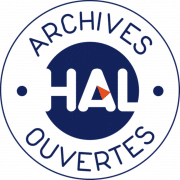Theoretical ECOlogy, Modelling & Data Analysis (ECOMAD)
Headers : David Nerini and Séverine Martini
The ECOMAD team (ECOlogie Théorique, Modélisation & Analyse de Données - Theoretical Ecology, Modeling & Data Analysis) has emerged from a desire to focus on the interdisciplinary study of oceanic systems, from regional to global scales, combining the tools of theoretical ecology, quantitative ecology and physics.
The team's project is based on 3 ambitions:
- Clear identification of modelling and multi-scale data analysis activities in marine ecology and oceanography within the MIO via the development of tools and methods that can be made available to the scientific community.
- Understanding how marine ecosystems function as complex systems and studying their structural response and functioning in the face of endogenous (natural variability) or exogenous (anthropogenic impacts) disturbances.
- Increasing the MIO's national and international attractiveness in the field of ecological modelling, both in terms of welcoming colleagues and future recruits (engineers, researchers) and for Masters and PhD training.
In a national context, efforts are being made to develop and use historical data, as well as to acquire new data and develop new sensors, some of which are automated. The aim is to address the current need to attempt to give models an operational orientation (calibration, validation), for example, within the framework of the IPCC, the use of food web models to predict the dynamics of target species. The increasing complexity and richness of data means that data processing methods need to be adapted.
Our tools are based on holistic integrative modelling approaches and on a hypothetico-deductive approach founded on the "Theory/Experiments/Observations" triptych, enabling theory and experiments to be coupled. The team's researchers are involved at different levels of this triptych, from the development of ecology models, using deterministic or stochastic modelling approaches, the development of data analysis methods, to the joint use of different data from experiments, observations or models to address marine biology issues.

Scientific orientations
Partnership strategy
Academic (local, national, European, international)
ECOMAD is fully integrated into academic partnerships on a national scale via current ANR funding (MANA, FORESEA) and new ANR projects submitted, LEFE funding, OFB, EC2CO, Transverse Innovative Instrumentation (CNRS-IIT), Mission for Interdisciplinarity (CNRS-MITI), PIA3- DeepSea'nnovation, as well as on an international scale (Copernicus, CNES, ESA, Interreg funding), oceanographic campaign (BIOSWOT, APERO).
Socio-economic partnerships
The team is involved in partnerships with public bodies such as the Agence de l'eau (establishing the impacts of the Aix-Marseille metropolitan area on the Bay of Marseille using modelling), the GIPREB (ecosystem impacts on the Etang de Berre) and the Port-Cros National Park (study of larval dispersal of flagship species). These members are experts on scientific committees (GIS Posidonie, etc.) and members of learned societies (SFDS, SFBT, SMF, GDR, etc.).






